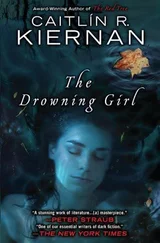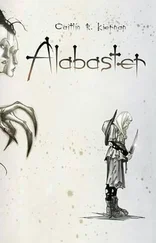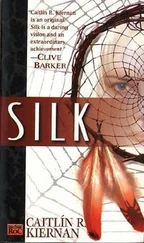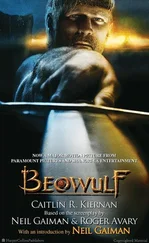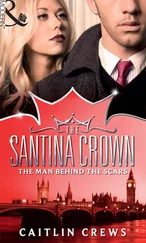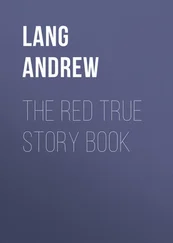Caitlin R. Kiernan - The Red Tree
Здесь есть возможность читать онлайн «Caitlin R. Kiernan - The Red Tree» весь текст электронной книги совершенно бесплатно (целиком полную версию без сокращений). В некоторых случаях можно слушать аудио, скачать через торрент в формате fb2 и присутствует краткое содержание. Жанр: Ужасы и Мистика, на английском языке. Описание произведения, (предисловие) а так же отзывы посетителей доступны на портале библиотеки ЛибКат.
- Название:The Red Tree
- Автор:
- Жанр:
- Год:неизвестен
- ISBN:нет данных
- Рейтинг книги:3 / 5. Голосов: 1
-
Избранное:Добавить в избранное
- Отзывы:
-
Ваша оценка:
- 60
- 1
- 2
- 3
- 4
- 5
The Red Tree: краткое содержание, описание и аннотация
Предлагаем к чтению аннотацию, описание, краткое содержание или предисловие (зависит от того, что написал сам автор книги «The Red Tree»). Если вы не нашли необходимую информацию о книге — напишите в комментариях, мы постараемся отыскать её.
The Red Tree — читать онлайн бесплатно полную книгу (весь текст) целиком
Ниже представлен текст книги, разбитый по страницам. Система сохранения места последней прочитанной страницы, позволяет с удобством читать онлайн бесплатно книгу «The Red Tree», без необходимости каждый раз заново искать на чём Вы остановились. Поставьте закладку, и сможете в любой момент перейти на страницу, на которой закончили чтение.
Интервал:
Закладка:
For the most part, Constance has kept to her attic, and, for the most part, I’ve passed the time downstairs reading and watching old movies. Mostly, I suspect we’ve both been trying not to think about whatever happened when we tried to reach the tree last Sunday. I have avoided the manuscript, and I have also avoided glancing out the kitchen window. I know she’s been painting, because she tells me so when I bother to ask. And the variegated stains on her hands and the smocks she wears change from day to day. The smells of linseed oil and turpentine leak down to me. Before today, we weren’t talking very much, mostly only when we happened to share a meal, which has been less frequent than before. She’s either got some food squirreled away up there, or Constance has simply been skipping meals. I would guess the latter. I can tell she hasn’t been sleeping well. Her eyes are bloodshot and the flesh beneath them looks bruised.
But she came down to breakfast this morning, seeming a bit more like her old self; that is, seeming a bit more like she did before our “lost picnic.” She made eggs and bacon, and while we were eating I suggested we take a drive. I was surprised when she agreed.
“Have you seen Beavertail?” she asked, and I told her that sounded like a pickup line from a dyke bar. At least I made her smile for a moment.
“It’s over on Conanicut Island,” she continued, the tines of her fork rearranging what was left of her scrambled eggs. “On the way to Newport. There’s a lighthouse, and the tourists usually aren’t too bad there. No real beaches. Just rocks.”
“Sounds good to me,” I told her. “I’m sick to death of this place.”
“You’re not writing,” she said. It wasn’t a question, but I answered like it was.
“No, I’m not.”
Constance frowned and stopped picking at her eggs.
“Have you talked to your agent?”
“No, I haven’t. Honestly, I think she’s about ready to give up on me. The woman has the patience of a saint, but even saints have their limits.”
“I really don’t know much about Catholicism,” she said, and when I laughed, she just sort of stared at me.
“Jesus, girl. I think maybe you need to get out of this dump even more than I do.” And then I told her to get dressed while I saw to the dirty dishes. So, she went back upstairs to change clothes while I washed the plates and coffee cups, the greasy skillet and utensils. Half an hour or so later, a little before noon, we were headed south on Barbs Hill Road. Constance talked quietly while I drove, and as we got farther from the Wight place, her mood seemed to lighten a little, her features becoming gradually, but noticeably, less weary. She told me stories about visiting the lighthouse on Conanicut Island, pausing now and then to give me directions, because I had no map and no idea which roads to take. Her stories were entirely unremarkable, and I was glad for that. No “ghost of the Forty Steps” here, just the sorts of anecdotes that tend to accumulate when someone has gone back to a particular place very many times over the course of a life. The sorts of stories that make a place familiar and comforting. I don’t have a lot of those sorts of places myself, for many different reasons.
As we headed out across the span of the Jamestown Verrazano Bridge, leaving the mainland behind and crossing the west passage of Narragansett Bay, she pointed to the ruins of an older, smaller bridge on our right. It ended abruptly a few hundred yards from the shore.
“That’s the old Jamestown Bridge,” she informed me. “They demolished it a few years back. Shaped charges, TNT, you know, the whole controlled-demolition thing. I don’t know why they left that part standing. Used to scare the hell out of me, crossing the old bridge, ’cause there were just the two undivided lanes, and the grade was so steep sometimes cars stalled, but there really wasn’t anywhere to pull over and get out of the way. And out there is Beavertail,” she said, pointing past the bridge to a low green bit of land a couple of miles to the south of us. The day was clear and hot, hardly a scrap of cloud to be seen anywhere, and the color of the bay wasn’t all that different from the color of the sky.
“It was even worse in the winter,” she added. “The bridge, I mean.” And then Constance didn’t say anything else until we were almost off the bridge, and I asked her about the exit.
I still haven’t quite gotten used to how close together everything seems in New England, compared to the careless sprawl of the South. We stopped at a grocery store in Jamestown, because Constance said she needed to pee and this was our last chance, and when I checked my watch, I saw that it had only been about forty-five minutes since we’d left the house. I’d just assumed the drive would take a lot longer, that it would be late in the day before we reached our destination. But no, here we were, almost there, and less than an hour had gone by. The air smelled like saltwater, and the woods and fields of Moosup Valley seemed much farther away than the thirty or so miles we’d driven. This landscape of picturesque cottages, salt marshes, and sailboats hardly seemed to belong in the same state as Squire Blanchard’s peculiar tract of land.
I followed Constance inside, because my own bladder’s seen better days, and I was getting hungry, and needed a fresh pack of cigarettes. Inside, it was cool, and there was a mix of what Shirley Jackson might have called “summer people” and year-round residents. In the checkout aisle, Constance (who was buying a Hostess lemon pie and a Dr Pepper) turned to me and said, speaking softly enough that no one else would hear, “You never talk about her.
”And, no lie, for a second or two I had no idea who she meant.
“Why is that, Sarah, that you never talk about Amanda?” she asked, smiling for the cashier, who asked if it would be cash or debit. Constance told her cash, and then fished a couple of crumpled bills from her jeans pocket.
“We’ve talked about Amanda,” I replied, thinking I was surely telling the truth, that she must have come up at some point since Constance had returned from LA and taken up residence in the attic.
“Nope,” she said. “Not even once. I’ve never even heard you say her name.”
The cashier took Constance’s money, but looked at the crumpled one-dollar bills like she didn’t see such unsightly things very often.
Constance turned her head and looked at me. “If you need to talk about her, Sarah, I don’t mind listening. I’m actually pretty good at listening.”
“I’ve never mentioned her to you?” I asked.
“Not even once?” and Constance shook her head.“Not even once,” she replied.
“Then how did you know to ask about her?” and I realized that the cashier was staring at me, as though she, too, was curious why I’d never spoken to Constance about my dead girlfriend.
“I’ve been reading your new story,” Constance said. “It’s dedicated to her, right?”
“I don’t have a new story,” I said, and the cashier was watching me now.
“You’re a writer?” she asked, smiling a blandly eager sort of smile. “Wow. That’s so interesting. You know, I’ve always wanted to be a writer.”
I glared at her a second or two, then turned back to Constance, who was screwing the cap off her bottle of Dr Pepper. “That’s utterly fucking fascinating,” I said, “because, you know, I’ve always wanted to be a checkout girl.”
Constance laughed, and the girl at the register muttered something angry and offended. I’m not sure what she muttered, because I was already on my way out the door, whatever I’d intended to buy forgotten, my hunger forgotten, the need for cigarettes forgotten, too. Behind me, I could still hear Constance laughing, and all I could figure was that she must have been sneaking downstairs while I was asleep and reading this journal, that she’d begun reading it before I had finally decided to start hiding the pages.
Читать дальшеИнтервал:
Закладка:
Похожие книги на «The Red Tree»
Представляем Вашему вниманию похожие книги на «The Red Tree» списком для выбора. Мы отобрали схожую по названию и смыслу литературу в надежде предоставить читателям больше вариантов отыскать новые, интересные, ещё непрочитанные произведения.
Обсуждение, отзывы о книге «The Red Tree» и просто собственные мнения читателей. Оставьте ваши комментарии, напишите, что Вы думаете о произведении, его смысле или главных героях. Укажите что конкретно понравилось, а что нет, и почему Вы так считаете.

